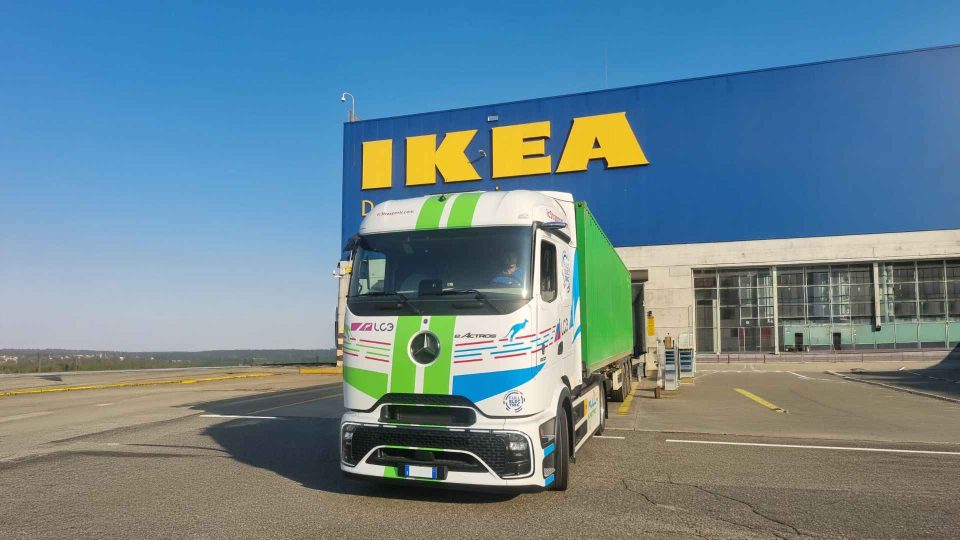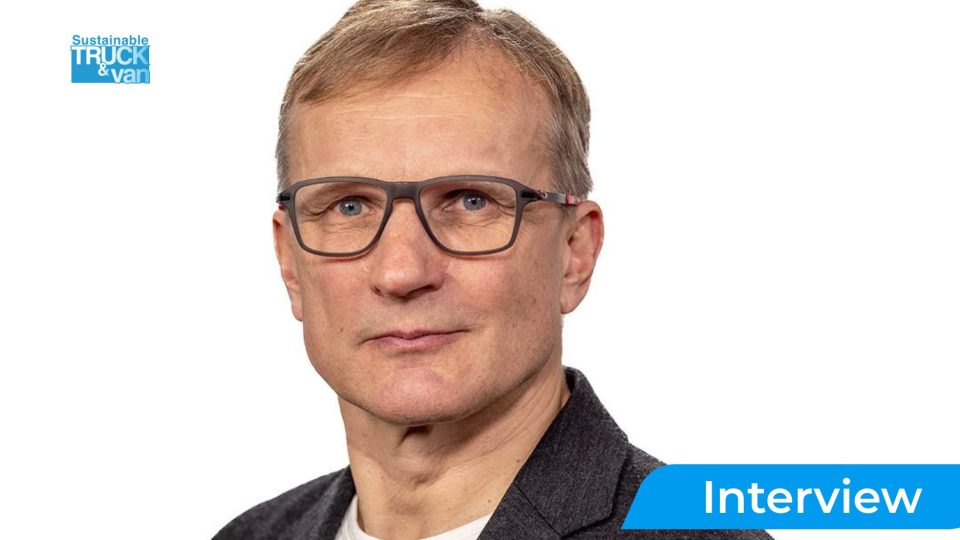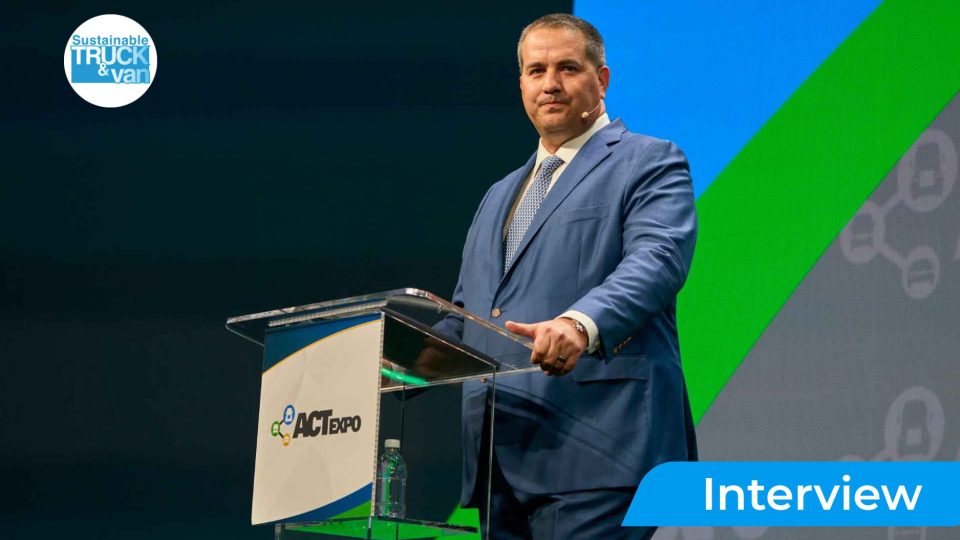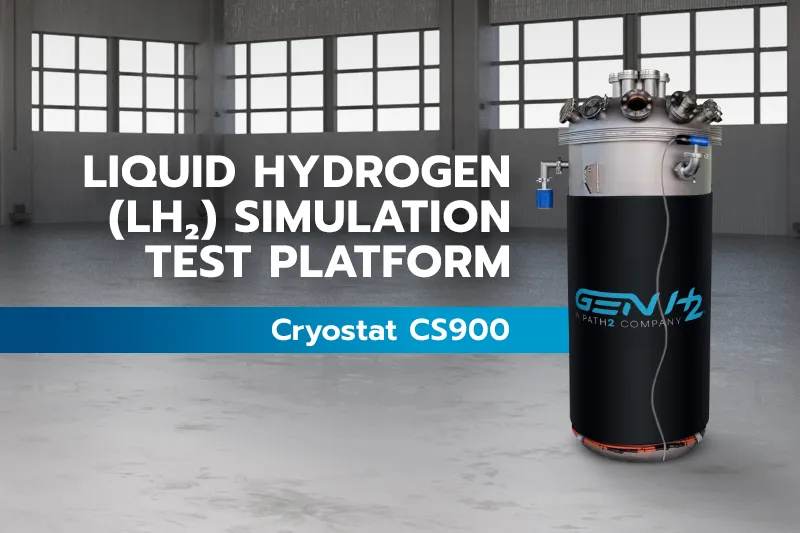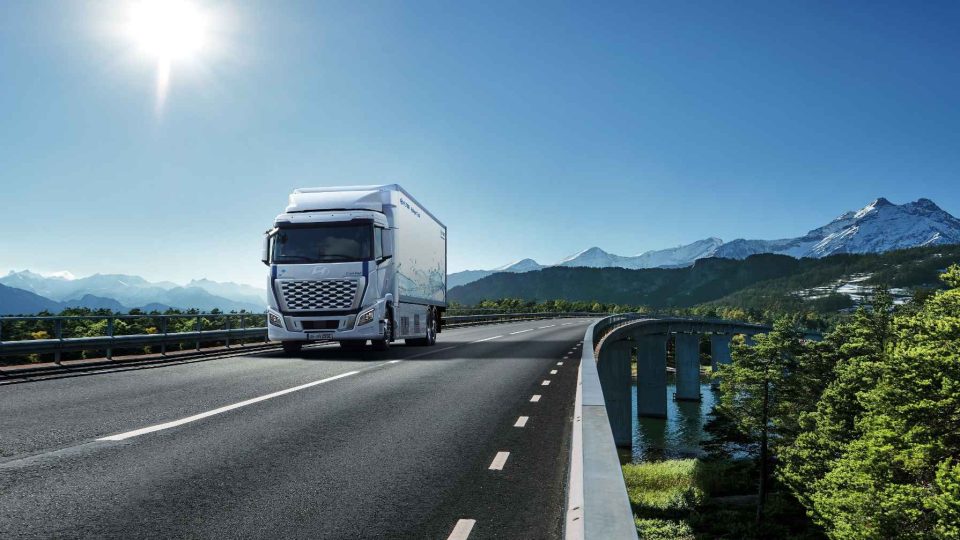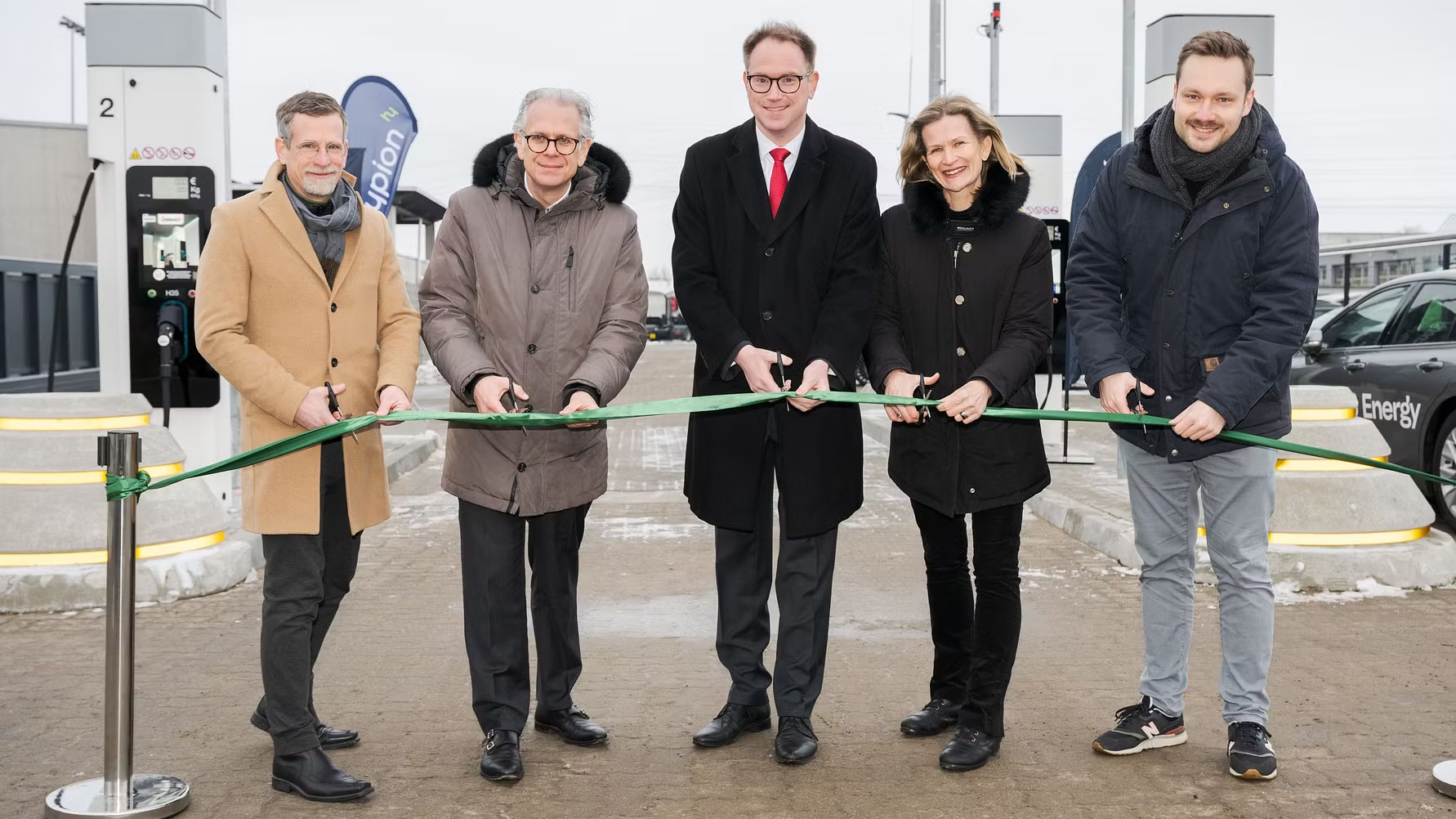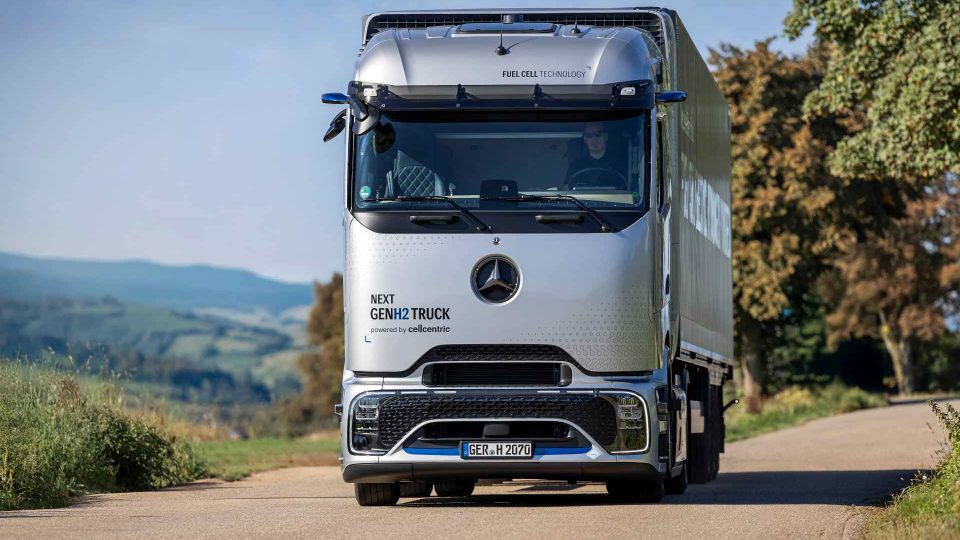Daimler Truck successfully ends customer testing program with GenH2 hydrogen-powered trucks
Five Mercedes-Benz GenH2 Trucks have completed more than 225,000 kilometers in initial customer trials with Air Products, Amazon, Holcim, INEOS Inovyn, and Wiedmann & Winz. The program started in July 2024. Daimler Truck reports quite positive customer feedback, even though the stsrt of series production was postponed from 2027 to 2030.
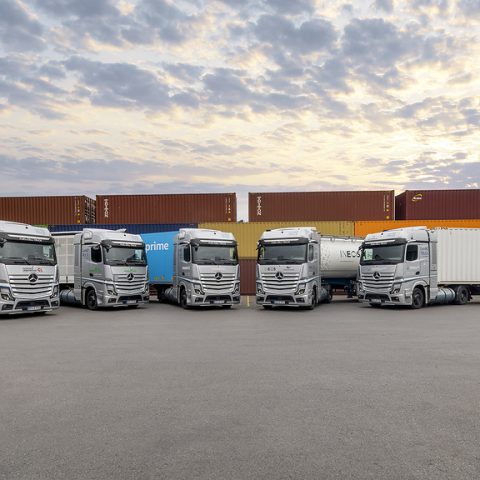
Daimler Truck has recently ended customer testing program with GenH2 hydrogen-powered trucks (here’s our post about the beginning of the program, in July 2024). More into details, five Mercedes-Benz GenH2 Trucks have completed more than 225,000 kilometers in initial customer trials with Air Products, Amazon, Holcim, INEOS Inovyn, and Wiedmann & Winz.
The aim of the program was “to test the reliability and efficiency of the vehicles under real-world conditions and to give these customers the early opportunity to gain first-hand experience in transporting goods with fuel cell”, states Daimler Truck. The fuel cells used in the trucks are developed and manufactured by cellcentric, a joint venture of Daimler Truck and Volvo Group.
The five GenH2 Trucks were deployed by customers on specific routes within Germany during the trial period and took on various transport tasks. For example, Amazon’s transportation partner used the Mercedes-Benz GenH2 Truck within Amazon’s logistics network on a dedicated route between the Fulfillment Center in Frankenthal (Rhineland-Palatinate) and the Delivery Station in Sindelfingen (Baden-Wuerttemberg). On the other hand, Air Products used the Mercedes-Benz GenH2 Truck for the transportation of bottled gases from its bottle filling plant in Hattingen on the Ruhr River and supplied gas centers and customers from there.
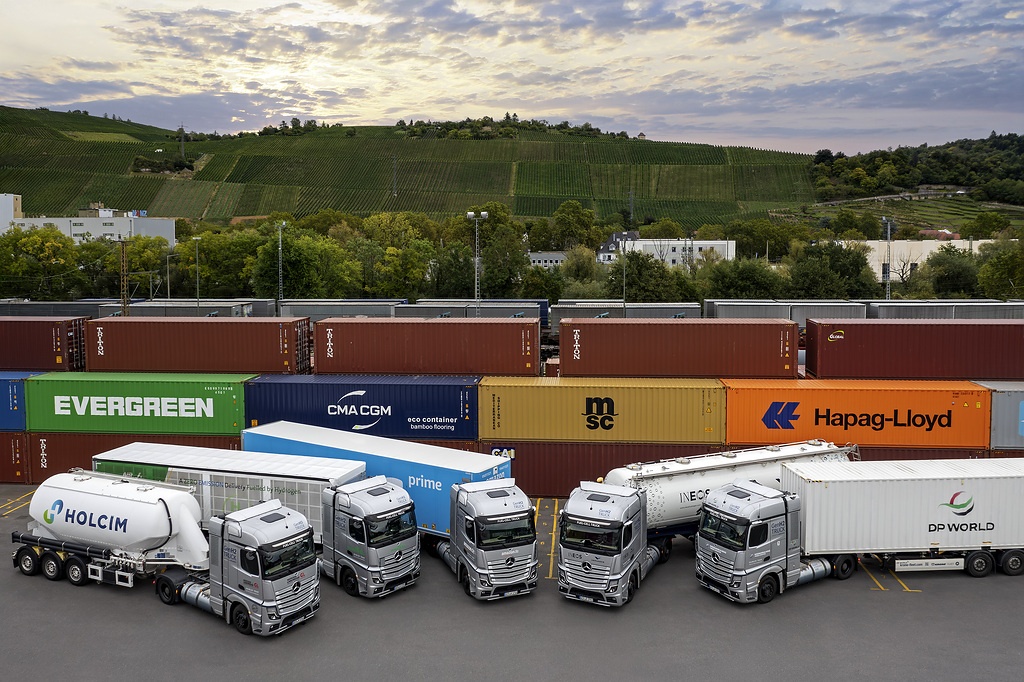
Daimler Truck’s GenH2 hydrogen truck: customers’ feedback
Direct customer feedback regarding the trials confirms that the vehicles integrated reliably and smoothly into daily logistics operations. In particular, customers emphasized the practicality similar to that of today’s diesel trucks, among other things due to the long range of 1,000 kilometers and more, as well as short refueling times of 10 to 15 minutes.
According to Daimler Truck, drivers also praised the dynamic power delivery, smooth and comfortable ride, and low noise levels – all advantages that the Mercedes-Benz GenH2 Truck can leverage as an electrically powered vehicle that uses hydrogen as an energy source and with a fuel cell output of 300 kW and a 70-kWh battery for situational power peaks.
A major challenge on the way to the series production of fuel cell trucks remains the continued lack of a comprehensive network of hydrogen refueling stations, particularly for liquid hydrogen. By 2030, there is a requirement to expand the network across Europe to a total of 2,000 hydrogen refueling stations in order to enable the deployment fuel cell trucks in large numbers in practice. Also for this reasons, Daimler Truck was forced to postpone the beginning of GenH2 hydrogen truck series production from 2027 to the end of the decade.



